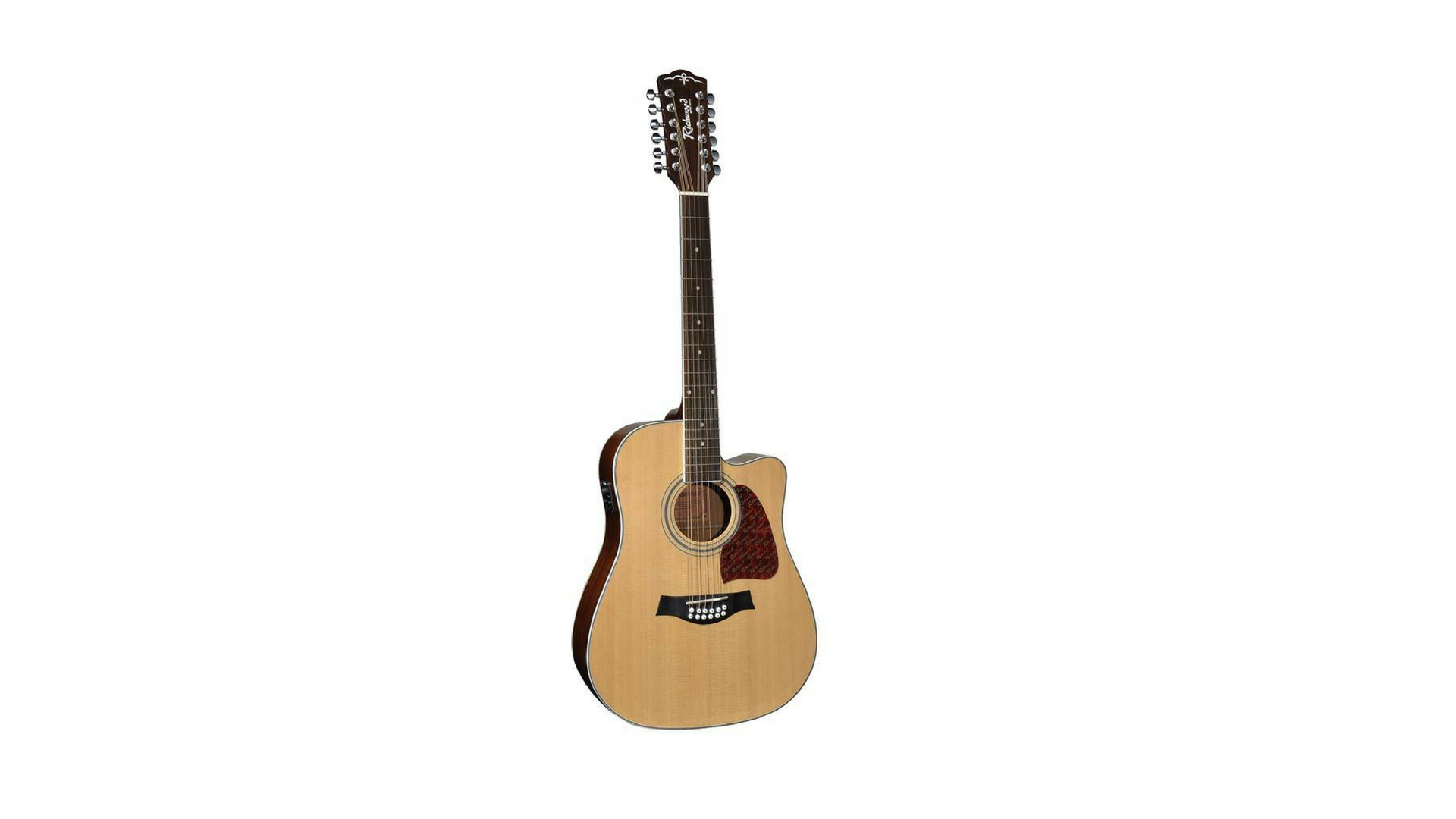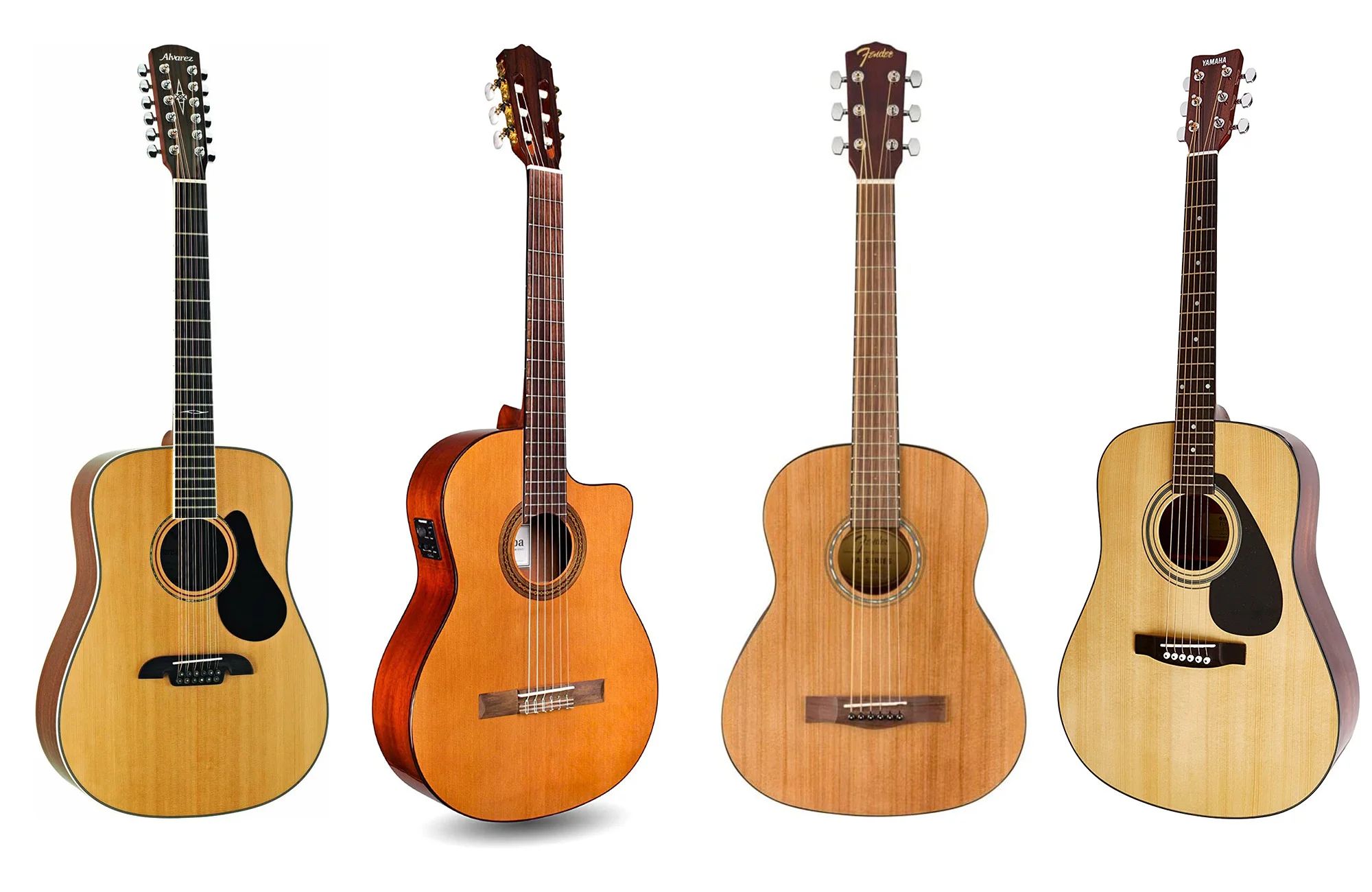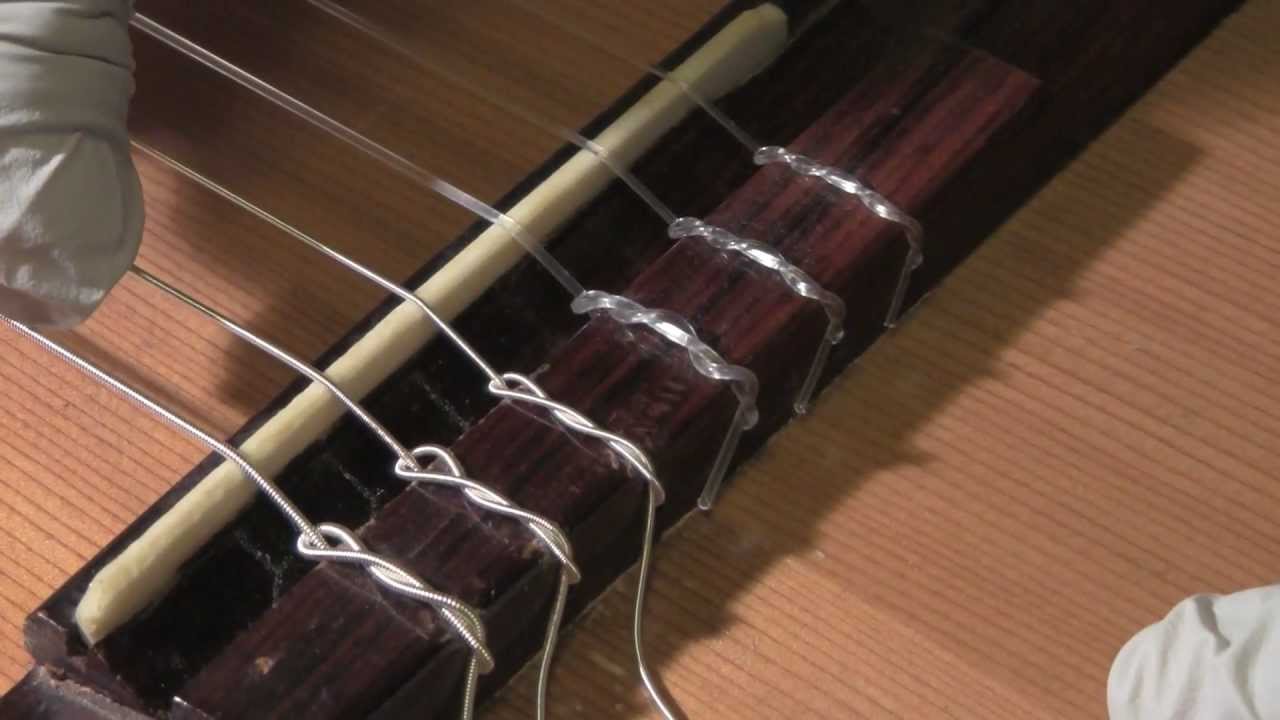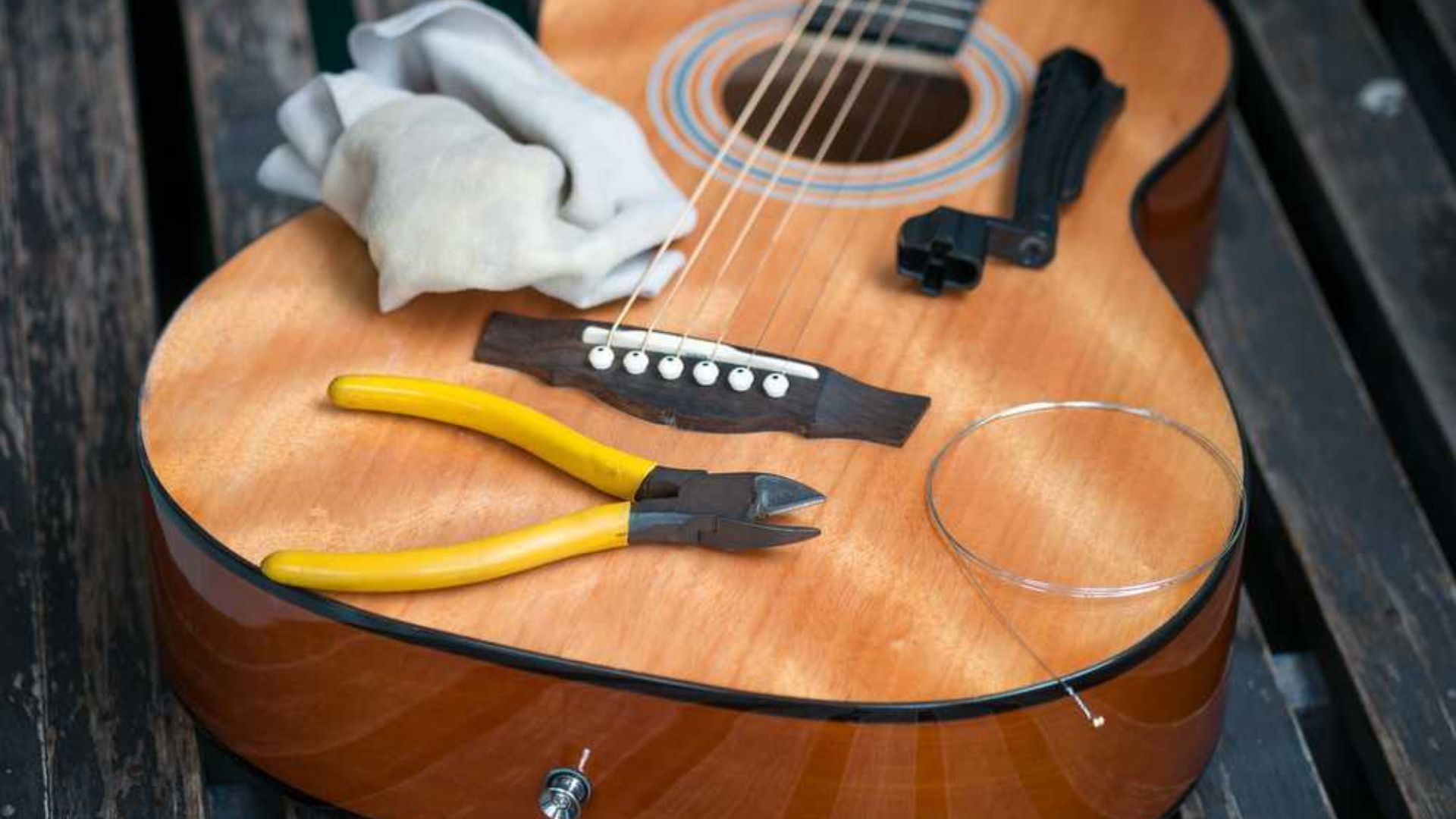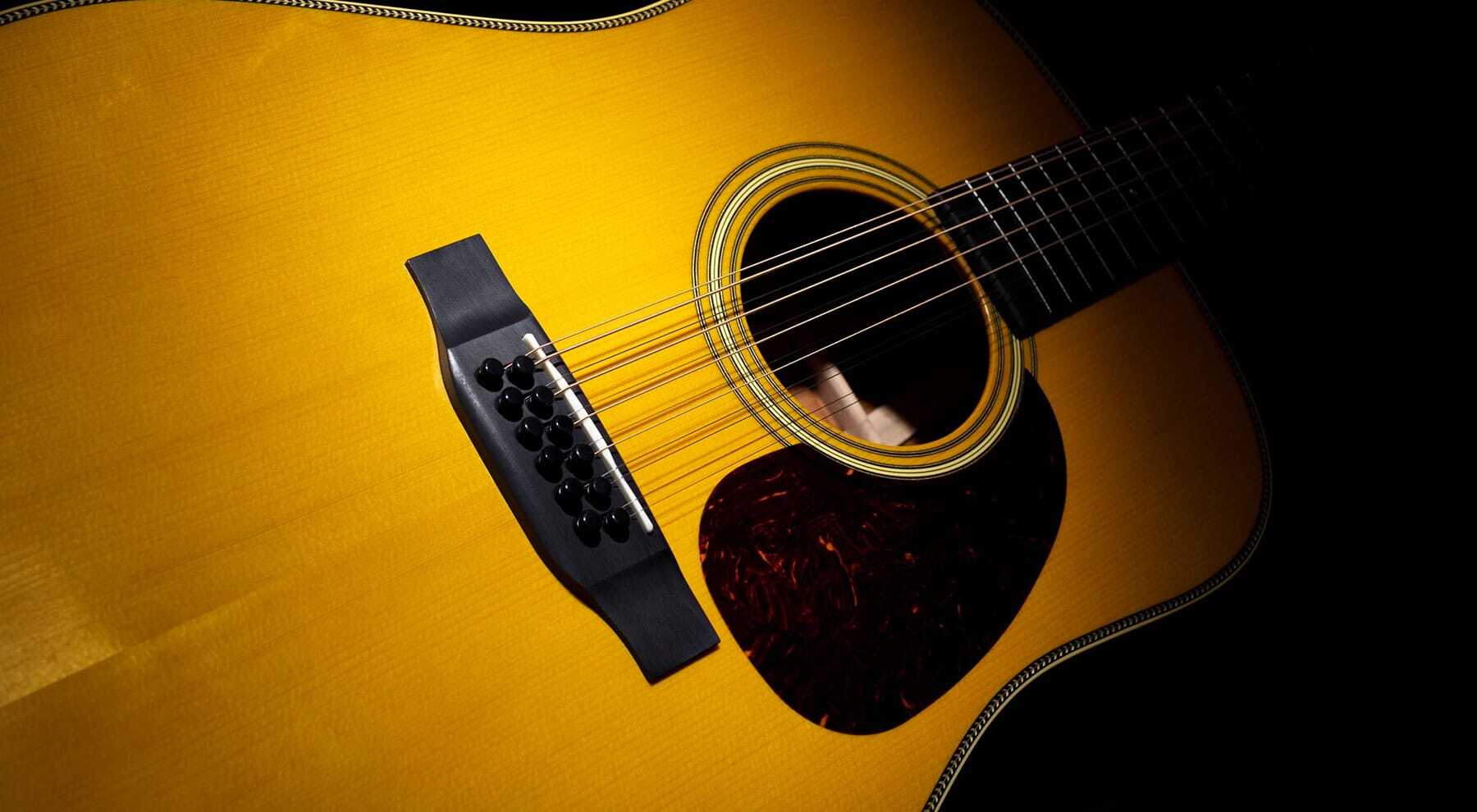Introduction
When it comes to playing the acoustic guitar, finding the right strings is essential for achieving the best sound and playability. The strings you choose can greatly impact the tone, feel, and overall performance of your instrument. With so many options available on the market, it can be overwhelming to determine which acoustic guitar strings are the best fit for your playing style and preferences.
In this article, we will explore the different factors to consider when choosing acoustic guitar strings, discuss the various types of strings available, highlight popular brands, and provide tips for maintaining your strings for optimal performance.
Whether you’re a beginner or an experienced player, understanding the differences between string types and knowing what to look for when selecting strings will help you make an informed decision that suits your playing style.
In the following sections, we will delve deeper into the various factors you should consider when choosing acoustic guitar strings, providing you with the knowledge and insight to make the best choice for your instrument and musical preferences. So, let’s dive in!
Factors to Consider When Choosing Acoustic Guitar Strings
When selecting acoustic guitar strings, there are several important factors to consider that can greatly influence your playing experience and the overall sound of your instrument. Here are the key aspects to keep in mind:
- Gauge: The gauge refers to the thickness of the strings. Lighter gauges produce a brighter tone and allow for easier bending, making them ideal for beginners and players who prefer a more delicate touch. Heavier gauges, on the other hand, offer a fuller tone and are better suited for players who prefer a stronger attack and heavier strumming.
- Tone: Different string materials and construction techniques yield different tones. Bronze strings generally produce a bright and crisp sound, while phosphor bronze strings offer a warmer tone with enhanced bass response. Nylon strings provide a mellow and soft sound, and coated strings are designed to minimize finger noise and retain their tone for a longer period of time.
- Playing Style: Consider your playing style and the genre of music you predominantly play. If you’re a fingerstyle player, lighter gauge strings with a softer touch may be more suitable. On the other hand, if you play with a heavy pick and enjoy aggressive strumming, heavier gauge strings that can handle the increased tension and provide more volume may be the better choice.
- Durability: The durability of acoustic guitar strings is an important factor, especially if you play frequently or perform live. Coated strings are specifically designed to resist corrosion and maintain their tone for a longer period of time. They are a great option for players looking for strings that last longer and require fewer string changes.
- Budget: Strings come in a wide range of prices, so it’s essential to consider your budget. While premium strings may offer superior tone and durability, there are also affordable options that provide excellent playability and performance. It’s all about finding the balance between your desired quality and your budget.
By considering these factors and evaluating your own preferences and playing style, you can narrow down your options and make an informed decision when choosing the best acoustic guitar strings for your instrument.
Different Types of Acoustic Guitar Strings
Acoustic guitar strings come in various types, each with its own unique characteristics and tonal qualities. Here are some of the most common types of acoustic guitar strings:
- Bronze Strings: Bronze strings are the most commonly used type of strings for acoustic guitars. They are made of an alloy consisting of 80% copper and 20% zinc. Bronze strings produce a bright and crisp tone with great sustain and clarity, making them suitable for a wide range of musical genres. They are also known for their durability and excellent projection.
- Phosphor Bronze Strings: Phosphor bronze strings are similar to bronze strings but with the addition of phosphor, which gives them a warmer and more balanced tone. These strings offer a rich bass response, making them great for players who prefer a warmer and more focused sound. Phosphor bronze strings are popular among fingerstyle and folk guitarists.
- Silk and Steel Strings: Silk and steel strings are made by wrapping a layer of silk between the core and the winding, resulting in a softer and more mellow tone. They are easier on the fingers and produce less tension, making them ideal for players with sensitive hands or those who enjoy a gentler playing experience. Silk and steel strings are often chosen by fingerstyle players and those who specialize in folk or blues music.
- Nickel Strings: Nickel strings are known for their warm and well-balanced tone. They offer smooth playability and longer sustain compared to bronze strings. Nickel strings are often favored by jazz and blues guitarists who seek a mellow and jazzy tone.
- Coated Strings: Coated strings are designed to resist corrosion and prolong the lifespan of the strings. They are treated with a thin polymer coating that helps prevent dirt, sweat, and other contaminants from compromising the tone and playability. Coated strings retain their fresh sound for a longer time, making them an excellent choice for frequent players and performers who want strings that last.
- Nylon Strings: Nylon strings are most commonly used on classical guitars or guitars with a wider neck. They produce a warm and mellow tone and have a softer feel. Nylon strings are often chosen by classical guitarists and musicians who play fingerstyle or flamenco.
Each type of acoustic guitar string has its own distinct characteristics, and the best choice will depend on your playing style, preferred tone, and musical genre. Experimenting with different types of strings can help you find the perfect match for your playing style and desired sound.
Bronze Strings
Bronze strings are the most popular and widely used type of strings for acoustic guitars. They are made of an alloy consisting of 80% copper and 20% zinc. Bronze strings offer a bright and crisp tone with excellent projection and sustain.
One of the notable characteristics of bronze strings is their ability to bring out the natural brightness and clarity of an acoustic guitar. They provide a lively and articulate sound that is well-suited for a wide range of musical genres, including pop, rock, folk, and country.
Bronze strings also offer great durability, making them a reliable choice for players who engage in frequent string bending or aggressive strumming. Their sturdy construction allows for vigorous playing without compromising their tone or longevity.
Furthermore, bronze strings are available in different gauges, allowing players to tailor the tension and feel to their preferences. Lighter gauge bronze strings are easier to play and offer a brighter tone, while heavier gauge strings provide more volume and a fuller sound.
It’s important to note that bronze strings may develop a patina over time, which can darken their appearance. This natural oxidation process does not affect their sound quality and is often considered a desirable characteristic among guitarists.
Overall, bronze strings are a reliable and versatile choice for acoustic guitar players of all levels. Their bright tone, excellent projection, and durability make them an excellent option for those seeking a well-balanced sound that can cut through the mix.
Phosphor Bronze Strings
Phosphor bronze strings are a popular variation of acoustic guitar strings that offer a warmer and more balanced tone compared to traditional bronze strings. They are made by adding a small amount of phosphor to the bronze alloy, resulting in improved tonal characteristics.
One of the distinguishing features of phosphor bronze strings is their enhanced bass response. They provide a rich and full-bodied sound with a warm and resonant low end. This makes them particularly well-suited for genres such as folk, country, and fingerstyle playing, where a warm and earthy tone is desired.
Phosphor bronze strings also offer excellent clarity and articulation, allowing for intricate picking and smooth string-to-string transitions. They strike a balance between the brightness of traditional bronze strings and the warmth of other string materials, making them versatile for various playing styles.
In addition to their tonal qualities, phosphor bronze strings are known for their durability. The addition of phosphor helps to increase their resistance to corrosion, extending their lifespan and maintaining their performance over time. This makes them a popular choice for professional musicians and frequent players looking for long-lasting strings.
Similar to bronze strings, phosphor bronze strings are available in different gauges to suit individual preferences. Lighter gauges offer ease of playability and brighter tones, while heavier gauges provide more volume and a stronger attack.
Overall, phosphor bronze strings are a fantastic option for acoustic guitarists seeking a balanced and warm tone with enhanced bass response. Their durability and versatility make them a favorite among fingerstyle players, singer-songwriters, and anyone looking for a rich and resonant sound.
Silk and Steel Strings
Silk and steel strings are a unique type of acoustic guitar strings that offer a softer and more mellow tone compared to other string materials. They are specifically designed to provide a gentle playing experience and produce a warmer sound.
One of the distinguishing features of silk and steel strings is the use of a layer of silk between the core and the winding. This silk layer adds a softness to the strings, resulting in reduced tension and a more comfortable feel under the fingers. As a result, silk and steel strings are particularly well-suited for players with sensitive hands or those who prefer a gentler touch.
The soft and mellow tone of silk and steel strings makes them an ideal choice for genres such as folk, blues, and fingerstyle playing. Their distinctive sound is often described as sweet, warm, and well-rounded. They offer a balanced response across the frequency range, with a focus on the mid-range and a subdued treble.
Additionally, silk and steel strings are known for their excellent playability and reduced finger noise. The silk layer helps to minimize the noise created when fingers slide across the strings, resulting in a smoother sound and improved overall clarity.
It’s worth noting that due to their lower tension, silk and steel strings may not produce as much volume or projection as other string types. However, they make up for it with their unique tonal qualities and comfortable playing experience.
Silk and steel strings are often favored by fingerstyle players and musicians who specialize in acoustic blues or folk music. They provide a mellower sound that complements these genres beautifully, adding a touch of warmth and richness to the overall tone.
Overall, silk and steel strings offer a soft and mellow playing experience with a unique tonal character. If you prefer a more gentle touch and a warm, subdued sound, then silk and steel strings may be the perfect choice for enhancing your acoustic guitar playing.
Nickel Strings
Nickel strings are a popular choice among acoustic guitarists looking for a warm and well-balanced tone. These strings are made with a steel core wrapped in nickel-plated steel windings, which contribute to their unique sound characteristics.
One of the notable features of nickel strings is their ability to produce a mellow and jazzy tone. They offer a smooth and rounded sound with a pronounced mid-range, making them particularly well-suited for jazz, blues, and other genres that require a mellow and laid-back sound.
Nickel strings provide excellent playability, thanks to their smooth surface and reduced finger noise. This makes them a preferred choice for players who prioritize a clean and clear sound without the interference of unwanted string noise.
Moreover, nickel strings are known for their longer sustain compared to other string materials. They offer a rich and resonant tone that lingers in the air, allowing notes to ring out beautifully. This characteristic is highly desirable for players who enjoy long, sustained passages or solos.
While nickel strings are generally associated with jazz and blues genres, they can also be used in other musical styles. Musicians looking to add warmth and depth to their acoustic guitar’s sound may find that nickel strings provide tonal versatility and a pleasing overall sound.
It’s worth noting that nickel strings may not offer as much brightness or projection as other string types. However, their distinctive warmth and smoothness make them an excellent choice for players seeking a mellower and more laid-back sound.
In summary, nickel strings are favored by acoustic guitarists who appreciate a mellow and jazzy tone. They offer smooth playability, reduced finger noise, and longer sustain, making them an ideal choice for jazz, blues, and other genres that require a warm and well-rounded sound.
Coated Strings
Coated strings are a type of acoustic guitar strings that have a thin polymer coating applied to the surface. This coating provides a protective barrier against corrosion, which can significantly extend the lifespan of the strings.
One of the primary benefits of coated strings is their longevity. The polymer coating helps to prevent the build-up of dirt, sweat, and oils on the strings, which can cause corrosion and degradation. As a result, coated strings maintain their bright and fresh sound for a longer period of time, even with regular use.
Another advantage of coated strings is reduced finger noise. The smooth surface of the coating minimizes the friction between the strings and the player’s fingers, resulting in a quieter and more seamless playing experience. This is especially beneficial for recording situations or performances where the elimination of unwanted string noise is desired.
Coated strings also offer a balanced tone and good playability. They are available in various materials, such as bronze or phosphor bronze, allowing players to choose the desired tonal characteristics. Additionally, coated strings are available in different gauges to accommodate different playing styles and preferences.
It’s important to note that the coating on coated strings can wear off over time, especially with heavy playing or frequent string bends. However, they still provide a longer lifespan compared to uncoated strings, making them a popular choice for players seeking longer-lasting strings.
While coated strings may cost slightly more than uncoated strings, the extended lifespan they offer can make them a cost-effective option in the long run. Players who want to reduce the frequency of string changes and enjoy consistent tone and playability may find coated strings to be a worthwhile investment.
Overall, coated strings are an excellent choice for acoustic guitarists who prioritize longevity and want strings that maintain their tone and playability over time. Their resistance to corrosion, reduced finger noise, and balanced tone make them a reliable and convenient option for both casual players and gigging musicians.
Nylon Strings
Nylon strings are synonymous with classical guitars and are commonly used on guitars with wider necks. These strings are made from nylon polymer, which gives them their distinctive characteristics and unique sound.
One of the defining features of nylon strings is their warm and mellow tone. They produce a smooth and soft sound with a rounded attack and rich sustain. The warm tonal qualities of nylon strings make them a popular choice for classical music, fingerstyle playing, and genres that require a more delicate and mellow sound.
Compared to steel strings, nylon strings have less tension. This difference in tension makes them more forgiving on the fingers, providing a comfortable playing experience. As a result, nylon strings are often favored by beginners, players with sensitive fingertips, and those who enjoy a less aggressive playing style.
In addition to their warm and mellow tone, nylon strings offer a unique feel under the fingers. The smooth and soft texture of the nylon material enhances playability, making it easier to execute intricate fingerstyle techniques and perform rapid chord changes. This aspect is particularly beneficial for classical guitarists and those who emphasize fingerpicking.
Nylon strings also produce less finger noise compared to steel strings, resulting in a cleaner and more polished sound. This is especially advantageous when playing intricate passages or performing in recording settings where minimal string noise is desired.
It is important to note that nylon strings require a different type of guitar with a wider neck and special bridge construction to accommodate their size. While they are typically associated with classical guitars, nylon strings can also be used on certain acoustic and electric guitars that are specifically designed for nylon strings.
In summary, nylon strings offer a warm and mellow tone, comfortable playing experience, and reduced finger noise. They are a great choice for classical guitarists, fingerstyle players, and those seeking a softer and more delicate sound. With their distinctive characteristics, nylon strings bring a unique flavor to the acoustic guitar, adding a touch of elegance and grace to your playing.
Popular Brands of Acoustic Guitar Strings
When it comes to acoustic guitar strings, there are several reputable brands that consistently deliver high-quality products. These brands have earned a strong reputation among guitarists for their reliability, excellent tone, and durability. Here are some of the most popular brands of acoustic guitar strings:
- D’Addario: D’Addario is a well-known name in the world of guitar strings. They offer a wide range of acoustic strings in various materials and gauges, catering to different playing styles and preferences. D’Addario strings are highly regarded for their consistent quality, excellent tone, and long lifespan.
- Elixir: Elixir is renowned for its coated strings that provide extended lifespan and excellent tone. Their Nanoweb and Polyweb coatings offer protection against corrosion while maintaining the natural feel of the strings. Elixir strings are favored by many professional guitarists for their longevity and balanced sound.
- Martin: Martin is a legendary brand known for manufacturing high-quality acoustic guitars, and their strings are no exception. Martin strings are made with attention to detail and deliver exceptional tone and playability. They offer various string types, including traditional bronze and phosphor bronze, catering to different musical styles.
- Ernie Ball: Ernie Ball is a trusted name in the guitar world, and their acoustic guitar strings are known for their reliability and versatility. They offer a wide range of gauges and materials, allowing players to find the perfect strings for their playing style. Ernie Ball strings are highly regarded for their balanced tone and affordability.
These brands have consistently received positive feedback from guitarists of all levels, and their strings can be found in music stores worldwide. It’s worth mentioning that individual preferences may vary, and it’s always a good idea to try different brands and types of strings to find the perfect match for your instrument and playing style.
Whether you’re a beginner or a seasoned player, investing in quality strings from reputable brands can enhance your playing experience and bring out the best in your acoustic guitar’s tone. So, consider experimenting with different brands and types of strings to find the ones that suit your musical preferences and help you achieve the sound you desire.
D’Addario
D’Addario is a well-respected and widely recognized brand in the world of guitar strings. They have been manufacturing strings for over 300 years, and their commitment to quality and innovation has made them a popular choice among guitarists of all levels and genres.
One of the standout features of D’Addario strings is their consistent quality. Each set of strings undergoes rigorous quality control to ensure excellent craftsmanship and sound. Whether you’re looking for bronze, phosphor bronze, or coated strings, D’Addario offers a wide range of options to suit different playing styles and tonal preferences.
D’Addario’s EXP coated strings are particularly beloved for their longevity. They feature a micro-thin coating that protects the strings against corrosion and extends their lifespan while maintaining their natural tone and feel. This makes them a popular choice for gigging musicians and players who want strings that last longer without sacrificing quality.
Another reason many guitarists trust D’Addario is their dedication to innovation. They continually develop new technologies and materials to enhance the performance and playability of their strings. For example, their NY Steel core technology provides enhanced tuning stability and improved durability.
Furthermore, D’Addario is committed to sustainability. They have implemented programs to reduce waste and minimize their environmental impact. Their packaging has transitioned to environmentally friendly materials, and they offer string recycling programs to help reduce landfill waste.
Overall, D’Addario is a reliable and well-regarded brand that guitarists trust. With their extensive range of strings and commitment to quality and innovation, D’Addario continues to be at the forefront of the industry, providing guitarists with strings that deliver excellent tone, playability, and longevity.
Elixir
Elixir is a renowned brand in the guitar string market, highly regarded for its innovative coated strings that offer extended lifespan and exceptional tone. With their commitment to quality and longevity, Elixir strings have become a go-to choice for many guitarists.
One of the key features of Elixir strings is their coating technology. Elixir offers two types of coatings: Nanoweb and Polyweb. Nanoweb strings have a thin coating that feels and sounds like traditional uncoated strings, offering a natural feel and bright tone. Polyweb strings have a thicker coating for a smoother feel and warm, rounded tone.
The coating on Elixir strings helps to protect against corrosion and the build-up of dirt, sweat, and oils. This coating greatly extends the life of the strings, allowing them to retain their tone and playability for a longer time compared to uncoated strings. Elixir strings are known for maintaining their fresh sound even after extensive use.
Elixir strings are favored by many professional musicians, as their durability and consistent performance make them ideal for live performances and studio recordings. The long-lasting nature of Elixir strings can save guitarists money in the long run, as they require less frequent string changes.
Not only do Elixir strings offer exceptional longevity, but they also provide excellent playability. The smooth coating reduces finger squeak and string noise, allowing for a cleaner and more enjoyable playing experience. This is especially beneficial for recording situations or when playing in quieter settings.
Elixir offers a wide range of string options, including different gauges and materials such as bronze and phosphor bronze. This variety allows guitarists to find strings that best suit their playing style and tonal preferences.
Furthermore, Elixir is dedicated to sustainability and minimizing their environmental impact. They have implemented initiatives to reduce energy consumption, emissions, and waste throughout their production processes.
In summary, Elixir is a highly regarded brand that has revolutionized the guitar string market with their innovative coated strings. With their emphasis on longevity, exceptional tone, and playability, Elixir strings provide guitarists with a reliable and long-lasting option that enhances their playing experience.
Martin
Martin is a legendary brand in the guitar world, known for manufacturing high-quality acoustic guitars. Their expertise extends to their line of acoustic guitar strings, which have earned a solid reputation among musicians for their exceptional tone and playability.
Martin offers a wide range of acoustic guitar strings, catering to different playing styles and tonal preferences. They provide options in materials such as bronze and phosphor bronze, allowing guitarists to find the strings that best suit their musical needs.
One of the standout features of Martin strings is their commitment to consistent quality. Each set of Martin strings undergoes meticulous craftsmanship and stringent quality control, ensuring that every string meets their high standards. This attention to detail translates into excellent tone, responsiveness, and durability.
Many guitarists appreciate the balanced and clear tone that Martin strings provide. Whether you prefer a bright and crisp sound or a warmer and more resonant tone, Martin offers a variety of string options to achieve the desired sound for a wide range of musical genres and playing styles.
Martin strings are highly regarded for their playability as well. They have a smooth feel under the fingers, allowing for comfortable and effortless playing. The strings respond well to both strumming and fingerpicking techniques, providing a versatile and enjoyable playing experience.
Another reason guitarists trust Martin strings is their compatibility with Martin guitars. Since Martin has been making guitars for centuries, their strings are designed specifically to complement the tonal characteristics and playability of their guitars. Using Martin strings on a Martin guitar can further enhance the instrument’s overall sound and performance.
Furthermore, Martin is committed to sustainability and environmentally friendly practices. They have implemented initiatives to reduce waste and minimize the impact on the environment. Martin uses eco-friendly packaging materials, making their strings an attractive option for environmentally conscious musicians.
In summary, Martin is a legendary brand known for their exceptional acoustic guitars, and their strings live up to their reputation. With their commitment to quality, balanced tone, excellent playability, and compatibility with Martin guitars, Martin strings are a reliable choice for guitarists looking to enhance their playing experience and achieve great sound.
Ernie Ball
Ernie Ball is a renowned brand that has been providing guitarists with high-quality strings for over 50 years. With their commitment to innovation and dedication to meeting the needs of musicians, Ernie Ball has become a trusted name among guitarists worldwide.
Ernie Ball offers a diverse range of acoustic guitar strings, catering to different playing styles and tonal preferences. Their strings are known for their reliability, consistency, and affordability, making them a popular choice for guitarists of all levels.
One of the key features of Ernie Ball strings is their versatility. They offer various string gauges and materials, including bronze and phosphor bronze, allowing players to find the strings that best suit their playing style. From light gauge strings for easier bending and fingerstyle playing to heavier gauge strings for a fuller sound and increased projection, Ernie Ball provides options for every guitarist.
Ernie Ball strings are highly regarded for their excellent tone. They produce a balanced and clear sound with a strong mid-range presence. This tonal characteristic makes them well-suited for a wide range of musical genres, from folk and country to rock and blues.
Another notable aspect of Ernie Ball strings is their playability. They have a smooth feel under the fingers, allowing for comfortable fretting and ease of movement across the fretboard. Guitarists appreciate the responsiveness and flexibility of Ernie Ball strings, making them a great choice for both rhythm playing and lead guitar work.
In addition to their quality and playability, Ernie Ball strings are also known for their affordability. They offer a budget-friendly option without compromising on tone and durability. This accessibility makes Ernie Ball strings popular among beginners, hobbyists, and professional musicians alike.
Ernie Ball is also committed to environmental sustainability. They have implemented environmentally friendly practices and initiatives across their manufacturing processes to reduce waste and limit their impact on the environment.
In summary, Ernie Ball is a trusted brand that offers a wide range of high-quality and affordable acoustic guitar strings. With their versatility, excellent tone, and playability, Ernie Ball strings are a reliable choice for guitarists looking for affordable strings that deliver on performance and quality.
Tips for Maintaining Acoustic Guitar Strings
Maintaining your acoustic guitar strings is crucial for ensuring optimal tone, playability, and longevity. By implementing a few simple practices, you can extend the life of your strings and maximize their performance. Here are some effective tips for maintaining your acoustic guitar strings:
- Clean your strings after playing: After each playing session, it’s important to wipe down your strings with a clean cloth to remove any dirt, oils, and sweat that may have accumulated. This will prevent corrosion and keep your strings sounding fresh.
- Wash your hands before playing: Oils and dirt on your hands can transfer to the strings, causing them to deteriorate more quickly. Make it a habit to wash your hands before playing to minimize the buildup of contaminants on your strings.
- Use string cleaning products: Consider using specialized string cleaning products to remove stubborn grime and extend the life of your strings. Apply the cleaner onto a cloth and gently wipe your strings to remove any residue.
- Keep your guitar in a controlled environment: Extreme temperature and humidity can damage your strings. Store your guitar in a location with stable temperature and humidity levels to prevent unnecessary wear and tear on the strings.
- Trim your fingernails: Long fingernails can cause excessive wear and tear on the strings, leading to breakage or faster deterioration. Keep your nails short and smooth to minimize the impact on your strings.
- Change strings regularly: Despite proper maintenance, acoustic guitar strings will eventually lose their brightness and tone. It’s important to change your strings regularly to maintain optimal performance. The frequency of string changes will vary depending on how often you play and your personal preference.
- Stretch new strings: When installing new strings, it’s important to stretch them to minimize tuning issues and improve stability. Gently pull and stretch each string along its length to help it settle in and hold its tune better.
- Protect your guitar during travel: If you’re traveling with your guitar, use a sturdy case or gig bag to protect it from damage, including the strings. This will minimize the chances of the strings getting bent or broken during transport.
- Avoid excessive bending and strumming: Excessive or aggressive bending and strumming can put extra strain on your strings, potentially causing them to break or lose their tonal quality. Use controlled techniques and be mindful of the tension you’re putting on the strings.
- Consider coated strings: If you want strings that last longer and require less frequent changes, consider using coated strings. Coated strings have a protective layer that helps resist corrosion and maintain their tone for an extended period of time.
By following these tips, you can ensure that your acoustic guitar strings remain in optimal condition, providing you with great tone, playability, and longevity. Remember, a well-maintained set of strings can greatly enhance your playing experience and keep your guitar sounding its best.
Conclusion
Choosing the right acoustic guitar strings and maintaining them properly is essential for achieving the best sound and playability from your instrument. Consider factors such as gauge, tone, playing style, durability, and budget when selecting strings that suit your preferences and musical style.
There are various types of acoustic guitar strings available, each with its own unique characteristics. Bronze strings offer a bright and crisp tone, while phosphor bronze strings provide a warmer tone with enhanced bass response. Silk and steel strings offer a softer and mellow sound, while nickel strings produce a warm and well-balanced tone. Coated strings are designed to resist corrosion and maintain their tone for longer periods, and nylon strings are commonly used on classical guitars for their warm and mellow sound.
Popular brands like D’Addario, Elixir, Martin, and Ernie Ball are trusted by musicians for their consistent quality, tonal excellence, playability, and affordability. These brands offer a wide range of options to cater to different playing styles and musical preferences.
To maintain your acoustic guitar strings, practice regular cleaning, wash your hands before playing, use string cleaning products, control the environment, trim your fingernails, change strings regularly, stretch new strings, protect your guitar during travel, avoid excessive bending and strumming, and consider coated strings for longer lifespan.
By applying these tips and staying diligent in caring for your acoustic guitar strings, you can ensure that your instrument consistently delivers the best sound and performance. Whether you’re a beginner or an experienced player, investing time and effort into choosing and maintaining your strings will enhance your playing experience and help you achieve your desired tone and playability.









